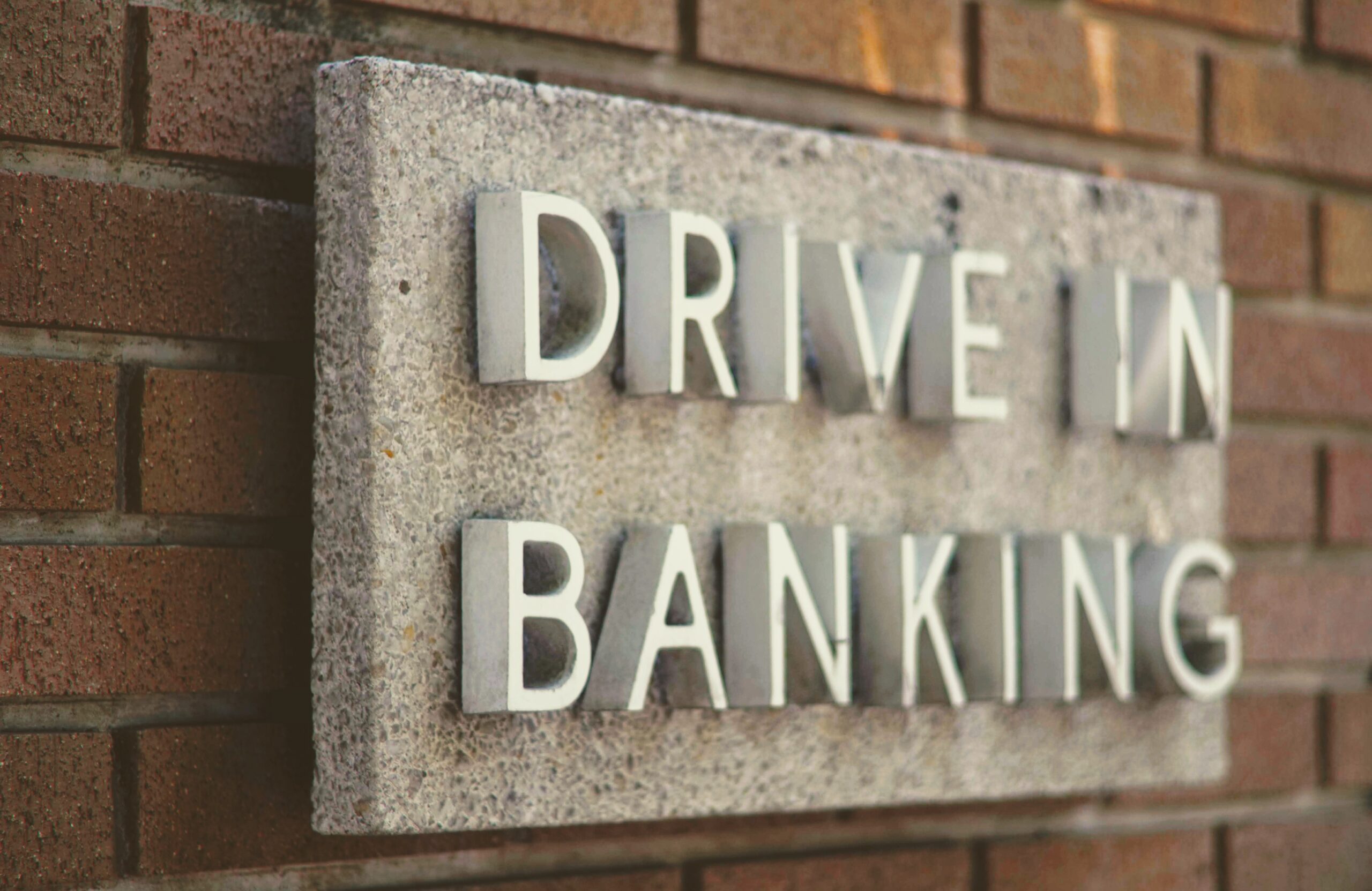You’re about to embark on a journey through the world of banking, where delays in depositing funds can sometimes put a wrench in your plans. In this article, we’ll explore the challenges that arise when it comes to bank deposit delays, specifically focusing on how these delays can impact the financial well-being of seniors. Whether you’re a retiree or simply someone looking to understand the intricacies of the banking system, this article will provide you with valuable insights and practical tips for navigating these delays with ease.
Understanding Bank Deposit Delays
Bank deposit delays can be frustrating for customers and have significant impacts on their financial well-being. In this article, we will explore the common causes of delayed bank deposits, the effects it can have on customers, and the legal aspects associated with such delays. Additionally, we will provide tips and best practices on how to navigate and mitigate these delays, emphasizing the importance of communication with your bank. We will also discuss the role of technology in reducing deposit delays. By understanding these aspects and taking proactive steps, you can effectively manage and overcome the challenges posed by delayed bank deposits.
Common Causes of Delayed Bank Deposits
Debit and Credit Card Transaction Hold-ups
One common cause of delayed bank deposits is when there are hold-ups in debit and credit card transactions. This can occur when there are issues with the card authorization process, such as technical glitches or communication errors between the merchant, the payment processor, and the bank. These hold-ups can delay the transfer of funds into your bank account, resulting in delays in accessing your money.
Manual Processing Errors
Another cause of delayed bank deposits is manual processing errors. Despite advances in technology, human errors can still occur during the manual processing of transactions. This can include mistakes in entering account details, misinterpretation of information, or oversight in verifying transaction details. Such errors can lead to delays in the deposit process, as they often require additional investigation and resolution.
Banking System Glitches
Banking system glitches can also contribute to delayed deposits. Technological issues, such as software malfunctions or network disruptions, can disrupt the smooth processing of transactions and result in delays. While banks are constantly working to improve their systems, occasional glitches can occur and impact the timeliness of deposits.
Account Verification and Anti-Fraud Measures
To ensure the security of customer accounts, banks have implemented various verification and anti-fraud measures. While these measures are essential for protecting customers’ finances, they can sometimes cause delays in deposit processing. Requirements such as additional verification steps, authentication processes, or reviews of suspicious transactions can prolong the time it takes for funds to be credited to your account.
ACH and Wire Transfer Delays
ACH (Automated Clearing House) and wire transfers are popular methods of transferring funds electronically between accounts. However, delays can occur in the ACH and wire transfer process due to various factors. These can range from issues with the originating bank, intermediary banks, or the receiving bank, to problems with the payment network. Delays in these types of transfers can result in a significant wait time for deposited funds to become available.
This image is property of images.unsplash.com.
Effects of Delayed Deposits on Customers
Cash Flow Problems
Delayed bank deposits can create cash flow problems for customers. If your deposited funds do not become available when expected, it can disrupt your budgeting and financial planning. This can be particularly challenging for individuals or businesses with tight budgets, as they rely on timely access to funds for essential expenses and financial commitments.
Late Bill Payments
When deposits are delayed, customers may struggle to make timely payments for their bills. This can lead to late payment fees or even service disruptions, such as utility shutoffs or credit card penalties. Late bill payments not only impact your financial standing but can also negatively affect your credit score, making it harder to secure loans or favorable terms in the future.
Overdraft Fees and Financial Penalties
Delayed deposits can also result in overdraft fees and other financial penalties. If you have automatic bill payments or recurring withdrawals set up, and the expected funds are not available due to delayed deposits, you may encounter overdrafting issues. These can result in costly fees charged by your bank as well as penalties from the entities with whom you have financial commitments.
Credit Score Implications
In addition to late bill payments, delayed deposits can have a direct impact on your credit score. Payment history is a crucial component of credit scoring models, and any delays in fulfilling financial obligations can be recorded as negative marks on your credit report. Lower credit scores can limit your access to credit or lead to higher interest rates and less favorable financial terms.
Stress and Anxiety
The stress and anxiety caused by delayed bank deposits should not be overlooked. Financial stability is essential for overall well-being, and any disruption in accessing funds can lead to increased stress and worry. This can affect your mental health, relationships, and overall quality of life. Understanding the causes and effects of delayed deposits can help alleviate some of this stress and empower you to take appropriate action.
Navigating and Mitigating Delayed Deposits
To navigate and mitigate the challenges of delayed bank deposits, it is essential to be proactive and take appropriate measures. Here are some strategies to consider:
Maintaining a Buffer in Your Bank Account
One way to safeguard against the impact of delayed deposits is to maintain a buffer in your bank account. By having some extra funds readily available, you can cover essential expenses and bills even if there are delays in depositing funds. This buffer can act as a safety net during periods of financial uncertainty.
Choosing the Right Deposit Method
When making deposits, it is important to consider the method you use. Different deposit methods have varying processing times, so choosing the right one can help minimize delays. Understand the processing times associated with each method offered by your bank and choose the one that best suits your needs and timelines.
Opting for Direct Deposits
Direct deposits can be a reliable way to ensure funds are deposited into your account in a timely manner. By setting up direct deposit with your employer or other income sources, you can eliminate the need for physical checks and expedite the deposit process. Direct deposits are often processed faster, reducing the likelihood of delays.
Utilizing Mobile Banking Features
Make use of the mobile banking features provided by your bank. Mobile banking allows you to monitor your account activity, receive real-time notifications, and initiate transactions conveniently from your smartphone. By staying connected to your account through mobile banking, you can quickly identify any delays or issues and take immediate action.
Prioritizing Bill Payments
To avoid late payment fees and penalties, prioritize your bill payments. Understand the due dates of your bills and allocate funds accordingly. By staying organized and ensuring you have sufficient funds available, you can minimize the impact of delayed deposits on your bill payment schedule.
Checking for Deposit Notifications
Regularly check for deposit notifications or alerts from your bank. Many banks provide notifications when deposits have been made to your account. By staying informed, you can quickly identify any delays or discrepancies in deposit processing and address them promptly.
Contacting Your Bank for Assistance
If you experience significant delays in deposit processing, do not hesitate to contact your bank for assistance. Customer service representatives can provide insights into the status of your deposit and help resolve any issues you may be facing. They may also offer alternative solutions or expedited processing options to mitigate delays.
Documenting and Reporting Deposit Issues
It is crucial to document any deposit issues you encounter. Keep records of deposit attempts, dates, and any relevant correspondence with your bank. If delays persist or if you incur financial losses due to delayed deposits, reporting the issues to your bank and providing proper documentation will strengthen your case for resolution.
Seeking Legal and Consumer Protection Remedies
If delays in bank deposits persist despite your efforts to resolve the issues with your bank, you may consider seeking legal and consumer protection remedies. Familiarize yourself with the consumer rights and protections offered by regulatory bodies and explore the legal options available to you. Consulting with a legal professional specializing in banking and consumer rights can provide valuable guidance in navigating this process.
Exploring Alternative Financial Services
In some cases, exploring alternative financial services may be necessary. These services offer alternatives to traditional banking and can provide faster access to funds. Research and evaluate the available options to ensure they are reliable, transparent, and regulated. However, exercise caution and thoroughly understand the terms and fees associated with these services before utilizing them.

This image is property of images.unsplash.com.
The Importance of Communication with Your Bank
Establishing open lines of communication with your bank is vital when it comes to dealing with delayed deposits. Clear and effective communication ensures that both parties understand the issue at hand and can work together to resolve it promptly. Here are some aspects to consider when communicating with your bank:
Understanding Bank Policies and Procedures
Familiarize yourself with your bank’s policies and procedures regarding deposits. Understanding the processes involved will help you navigate any issues that may arise and enable you to communicate more effectively with your bank’s representatives.
Reporting and Resolving Deposit Delays
When you encounter delays in deposit processing, promptly report the issue to your bank. Be prepared to provide relevant details, such as transaction references and dates, to assist in the investigation. Work with the bank’s representatives to resolve the issue as quickly as possible.
Escalating Issues to Higher Authorities
If your deposit delay concerns are not resolved through regular channels, consider escalating the matter to higher authorities within the bank. Supervisors or managers may have additional resources or decision-making capabilities to address the issue effectively. Be persistent in seeking resolution and advocate for your rights as a customer.
Maintaining Proper Documentation
Throughout the process of resolving deposit delays, maintain proper documentation. Keep records of all conversations, emails, and supporting documents related to the issue. These records will serve as evidence in case further action is needed, such as filing a formal complaint or seeking legal remedies.
Exploring Legal Aspects of Delayed Deposits
Delayed deposits may have legal implications, and it is important to understand your rights and the legal remedies available to you. Here are some legal aspects to consider:
Consumer Rights and Protections
Consumer rights and protections play a crucial role in addressing deposit delays. Laws and regulations are in place to safeguard consumers from unfair or deceptive banking practices. Familiarize yourself with these rights and protections to ensure your interests are protected in case of delayed deposits.
Regulatory Bodies Monitoring Banking Practices
Regulatory bodies oversee and monitor banking practices to maintain fair and efficient systems. These bodies establish rules and guidelines that banks must adhere to, and they investigate consumer complaints against banks. Knowing which regulatory bodies govern your bank can assist you in seeking appropriate legal remedies if needed.
Legal Remedies for Damages and Losses
In cases where deposit delays result in damages or financial losses, legal remedies may be available. Consult with a legal professional specializing in banking and consumer rights to understand your options. Legal remedies may include compensation for financial losses, reimbursement of fees or penalties incurred, or other forms of restitution.
Potential Class Action Lawsuits
If many customers experience similar deposit delays with a particular bank, it may lead to potential class action lawsuits. Class action lawsuits allow individuals with similar claims to collectively seek legal remedies against a bank. Keep informed about any ongoing class action proceedings that might be relevant to your situation.
Arbitration and Mediation Procedures
Some banks may have arbitration or mediation procedures in place to resolve disputes. These alternative dispute resolution methods can provide a more efficient and cost-effective way to seek resolution without going to court. Understand the terms and processes involved in arbitration or mediation before considering these options.

This image is property of images.unsplash.com.
Tips for Avoiding Bank Deposit Delays
While we cannot entirely eliminate the possibility of bank deposit delays, there are steps you can take to minimize the likelihood of encountering them. Consider the following tips:
Double-Check Information Accuracy
Ensure that all information provided during transactions, such as account numbers or routing codes, is accurate. Double-checking the information you provide can minimize the chances of errors that may cause delays.
Avoiding Peak Banking Periods
Try to avoid peak banking periods when making deposits. Peak periods, such as weekends, holidays, or the end of the month, can result in higher transaction volumes and potential delays. Plan your deposits accordingly to avoid unnecessary wait times.
Utilizing Automated Deposit Services
Many banks offer automated deposit services, such as ATM or mobile check deposits. Utilizing these services can speed up the deposit process and reduce the chances of delays associated with manual processing. However, be aware of any limitations or fees associated with these services.
Using Reliable Payment Platforms
When making payments or transfers, use reliable payment platforms that have a proven track record of prompt and secure transactions. Research and choose platforms that are widely accepted and trusted by both consumers and businesses.
Knowing Your Bank’s Cut-Off Times
Familiarize yourself with your bank’s cut-off times for deposits. Banks often have specific times for accepting deposits to ensure they are processed on the same business day. By submitting deposits before these cut-off times, you can increase the likelihood of timely processing.
Staying Updated on Banking Regulations
Stay informed about banking regulations and any changes that may affect deposit processing. Monitor updates from regulatory bodies and follow relevant news sources to ensure you are aware of any new guidelines or procedures that may impact the banking industry.
Regularly Monitoring Your Bank Account
Keep a close eye on your bank account and monitor the status of your deposits regularly. By reviewing your account activity, you can quickly identify any delays or discrepancies and address them promptly. Prompt action can help minimize the impact of potential delays.
Maintaining Emergency Funds
Establish and maintain emergency funds as a financial safety net. Having emergency funds readily available can provide a temporary cushion in the event of delayed deposits or other unexpected financial challenges.
Keep Records of All Transactions
Maintain detailed records of all your transactions, including deposit receipts and statements. These records serve as a reference in case of disputes or delays and can support your claims when communicating with your bank or seeking legal remedies.
Seeking Recommendations and Reviews
When choosing a bank or financial institution, seek recommendations and read reviews from existing customers. Consider their experiences with deposit processing and overall customer service. Customer reviews can provide valuable insights and help you make informed decisions.
Best Practices for Dealing with Delayed Deposits
To effectively deal with delayed deposits, it is important to adopt best practices that can help mitigate the impact and ensure a smoother resolution process. Consider the following best practices:
Remaining Calm and Patient
While delayed deposits can be frustrating, it is important to remain calm and patient throughout the process. Losing your temper or acting impulsively may hinder the resolution process. Focus on constructive communication and work towards a satisfactory resolution.
Maintaining Good Relationships with Bank Staff
Establishing and maintaining good relationships with bank staff can be beneficial when dealing with deposit delays. Friendly interactions and mutual respect can foster effective communication and a collaborative approach to resolving the issue.
Following Up on Deposit Issues Regularly
Regularly follow up on deposit issues until they are successfully resolved. Stay proactive in communicating with your bank, providing any additional information or documentation they may require. By being persistent, you reinforce the importance of a timely resolution.
Maintaining a Paper Trail
Keep a paper trail of all interactions, including emails, letters, or notes from phone calls. This documentation will serve as evidence of your efforts and can be valuable if you need to escalate the issue or seek legal remedies.
Understanding and Enforcing Your Rights
Familiarize yourself with your rights as a banking customer. When faced with delayed deposits, assert your rights and advocate for a timely resolution. Be aware of the laws and regulations that protect consumers and enforce them if necessary.
Considering Alternative Banking Options
If delays persist or if your bank consistently fails to address the issue satisfactorily, consider exploring alternative banking options. Research other banks or financial institutions that may offer more reliable deposit processing and superior customer service.
Seeking Professional Financial Advice
In complex situations involving significant financial impact, consider seeking professional financial advice. A financial advisor or accountant can provide guidance and assistance in navigating the challenges of delayed deposits and help you make informed decisions about managing your finances.
Learning from Delayed Deposit Experiences
Turn delayed deposit experiences into learning opportunities. Reflect on the situations that led to the delays and evaluate what could be done differently in the future. By learning from these experiences, you can increase your preparedness and minimize the impact of future delays.
Sharing Feedback and Experiences with Others
Share your feedback and experiences with others, whether through online reviews, social media, or word of mouth. By sharing your story, you can raise awareness, encourage dialogue, and potentially support efforts for improved banking systems and customer service.
Supporting Efforts for Improved Banking Systems
Support initiatives and efforts aimed at improving banking systems and customer experiences. By joining consumer advocacy groups or participating in discussions, you can contribute to the collective voice seeking positive change in the banking industry.
The Role of Technology in Reducing Deposit Delays
Technology plays a crucial role in reducing deposit delays and enhancing the overall banking experience. Advancements in banking technology have introduced various features and systems that can expedite deposit processes and improve efficiency. Here are some ways technology is helping to reduce deposit delays:
Automated Payment Processing
Automated payment processing systems streamline the deposit process by reducing the reliance on manual intervention. These systems automatically verify and process transactions, minimizing the chances of errors or delays caused by human factors.
Real-Time Payment Tracking
Real-time payment tracking allows customers to monitor the progress of their deposits and receive updates on the status of their funds. Through online banking platforms or mobile apps, customers can track the journey of their deposits and be aware of any potential delays.
Enhanced Fraud Detection Systems
Advanced fraud detection systems employ sophisticated algorithms and machine learning to identify and prevent fraudulent activities in real-time. These systems help minimize delays caused by account verification and anti-fraud measures, allowing legitimate deposits to be processed promptly.
Improved Communication Channels
Technology has enabled more efficient and effective communication channels between banks and their customers. Through secure messaging platforms, chatbots, and customer service portals, customers can easily engage with their banks to address deposit delays and other concerns. Real-time communication channels enhance transparency and lead to faster issue resolution.
Faster Clearing and Settlement Systems
Technological advancements have led to faster clearing and settlement systems, reducing the time it takes for deposited funds to become available. Real-time payment networks and instant payment systems enable quicker transfer of funds between banks, ultimately minimizing deposit delays.
Conclusion
Delayed bank deposits can have significant impacts on customers’ financial well-being and create a variety of challenges. By understanding the common causes of delayed deposits, the effects they can have, and the legal aspects associated with them, customers can navigate these challenges more effectively. Proactive strategies, such as maintaining a buffer in your bank account, choosing the right deposit method, and staying in communication with your bank, can help mitigate the impact of delayed deposits. Additionally, embracing technology and being aware of the role it plays in reducing delays can further enhance the banking experience. By employing these tips, best practices, and utilizing available resources, customers can navigate the complexities of delayed bank deposits and ensure their financial stability is not compromised.



